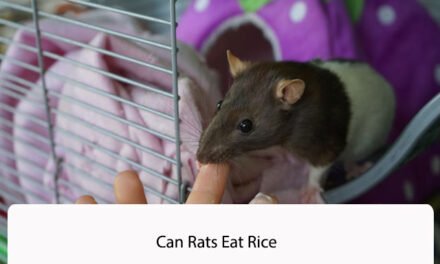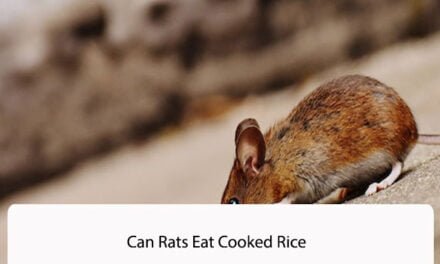Rabbit food is a common staple for pet rabbits, but can it be given to other animals such as rats? As pet owners, we want to ensure that our furry friends are getting the proper nutrition they need to stay healthy and happy. In this article, we will explore whether rats can eat rabbit food and what nutritional benefits or risks it may pose.
Rats are omnivores and can eat a variety of foods, including fruits, vegetables, grains, and proteins. However, not all foods that are safe for rats to eat are nutritionally balanced for them. Rabbit food typically consists of hay, pellets, and fresh vegetables, which are essential for a rabbit’s digestive system and overall health. But can rats safely consume these same foods without any negative effects? Let’s find out.
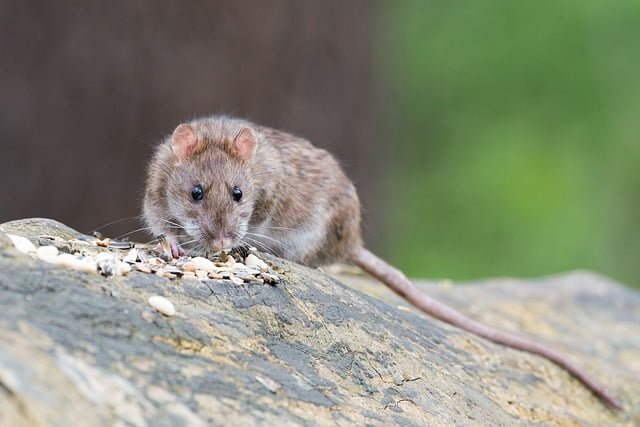
Understanding Rabbit Food
Rabbit food is a specialized type of food that is formulated to meet the nutritional needs of rabbits. It typically contains a mix of hay, pellets, vegetables, and fruits. The exact composition of the food can vary depending on the specific brand and type of food.
One of the key components of rabbit food is hay. Hay is a crucial part of a rabbit’s diet as it provides fiber that helps keep their digestive system healthy. Pellets are also an important part of rabbit food as they contain essential nutrients that rabbits need to stay healthy.
When choosing rabbit food, it’s important to pay attention to the ingredients list and nutritional information. Look for foods that contain a good balance of protein, fiber, and other essential nutrients. It’s also important to choose a food that is appropriate for your rabbit’s age, size, and activity level.
While rabbit food is formulated specifically for rabbits, it’s important to note that other animals may be able to eat it as well. For example, rats may be able to eat rabbit food, but it’s important to do so in moderation as it may not provide all the nutrients they need.
Overall, understanding the composition and nutritional value of rabbit food can help ensure that your rabbit is getting the nutrients they need to stay healthy.
Rat Dietary Requirements
As rat owners, we need to ensure that our pets receive a balanced and nutritious diet. A healthy diet is essential for maintaining good health and preventing diseases in rats. In this section, we will discuss the dietary requirements of rats and the types of food that are suitable for them.
Nutritional Needs
Rats are omnivores, which means they require a diet that consists of both plant and animal-based foods. They need a balanced diet that contains all the essential nutrients, including protein, carbohydrates, fat, vitamins, and minerals. Rats also require a source of fiber to maintain good digestive health.
Protein
Protein is essential for growth and development in rats. It is important to provide rats with a good source of protein in their diet. Some suitable sources of protein for rats include:
- Cooked chicken or turkey
- Eggs
- Fish (cooked)
- Lean cuts of beef or pork
- Tofu
- Insects (mealworms, crickets, etc.)
Carbohydrates
Carbohydrates provide rats with energy. It is important to provide rats with complex carbohydrates, such as whole grains, rather than simple sugars. Some suitable sources of carbohydrates for rats include:
- Brown rice
- Oats
- Whole wheat bread
- Pasta
- Fruits (in moderation)
Fat
Fat is an important source of energy for rats. It is important to provide rats with a source of healthy fats, such as those found in nuts and seeds. Some suitable sources of fat for rats include:
- Nuts (almonds, walnuts, etc.)
- Seeds (sunflower seeds, pumpkin seeds, etc.)
- Avocado (in moderation)
Vitamins and Minerals
Rats require a range of vitamins and minerals to maintain good health. It is important to provide rats with a varied diet to ensure they receive all the essential nutrients. Some suitable sources of vitamins and minerals for rats include:
- Dark leafy greens (spinach, kale, etc.)
- Carrots
- Sweet potatoes
- Broccoli
- Berries (in moderation)
In summary, rats require a balanced diet that contains protein, carbohydrates, fat, vitamins, and minerals. It is important to provide rats with a varied diet that includes both plant and animal-based foods to ensure they receive all the essential nutrients.
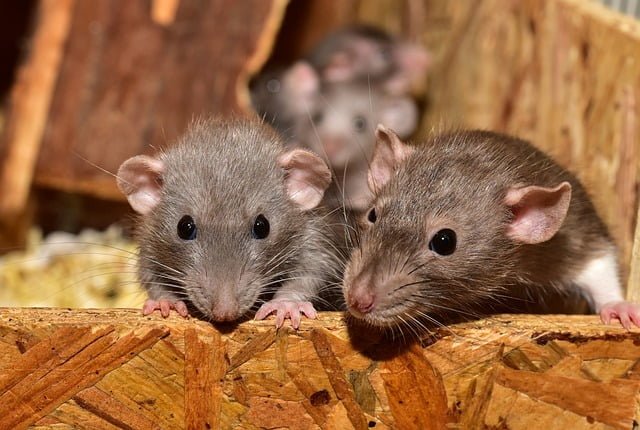
Can Rats Eat Rabbit Food
Rats are known to be opportunistic feeders, and they can eat a wide variety of foods. One of the questions that pet rat owners often ask is whether or not rats can eat rabbit food. In this section, we will explore the nutritional comparison between rabbit food and rat food and discuss the potential health risks associated with feeding rabbit food to rats.
Nutritional Comparison
Rabbit food typically consists of hay, pellets, and fresh vegetables. While rabbit food may contain some of the same ingredients as rat food, the nutritional requirements of rabbits and rats are different. Rabbits require a diet that is high in fiber, while rats require a diet that is high in protein and fat.
Rat food is formulated specifically to meet the nutritional needs of rats. It contains a balanced ratio of protein, fat, and carbohydrates, as well as essential vitamins and minerals. In contrast, rabbit food may not provide rats with all of the nutrients they need to thrive.
Potential Health Risks
Feeding rabbit food to rats may pose several potential health risks. One of the main concerns is that rabbit food may not provide rats with enough protein and fat. This can lead to malnutrition and a weakened immune system.
Another potential risk is that rabbit food may contain ingredients that are harmful to rats. For example, some types of rabbit food may contain alfalfa, which can cause bladder stones in rats. Additionally, rabbit food may contain high levels of calcium, which can lead to health problems in rats.
In conclusion, while rats can technically eat rabbit food, it is not recommended. Rabbit food may not provide rats with all of the nutrients they need to thrive, and it may also pose potential health risks. If you are unsure about what to feed your pet rat, it is always best to consult with a veterinarian or a qualified animal nutritionist.
Safe Alternatives for Rats
When it comes to feeding your pet rat, it’s important to ensure that their food is safe and nutritious. While rabbit food may seem like a viable option, it’s important to note that not all rabbit food is suitable for rats. In this section, we’ll discuss safe alternatives for rats.
Pelleted Rat Food
Pelleted rat food is a great option for rats as it provides all the necessary nutrients in one convenient package. Look for a high-quality pellet that contains a variety of grains, vegetables, and fruits. Pelleted rat food should make up the majority of your rat’s diet.
Fresh Fruits and Vegetables
Fresh fruits and vegetables should be offered to your rat on a daily basis. Some great options include apples, bananas, carrots, broccoli, and kale. Be sure to wash all produce thoroughly before offering it to your rat.
Cooked Grains and Proteins
Cooked grains and proteins can be a great addition to your rat’s diet. Some options include cooked brown rice, quinoa, chicken, and eggs. Be sure to avoid seasoning or adding any oils or fats to these foods.
Treats
Treats should be given sparingly and in moderation. Some safe options include small amounts of nuts, seeds, and dried fruits. Be sure to avoid sugary or fatty treats, as these can lead to health problems.
By following these guidelines, you can ensure that your pet rat is receiving a safe and nutritious diet.
Conclusion
In conclusion, rabbits and rats have different nutritional needs, and while some rabbit food may be safe for rats to eat, it is not recommended as a primary food source.
Rabbit food is designed to meet the specific nutritional needs of rabbits, which are different from those of rats. While some rabbit food may contain ingredients that are safe for rats to eat, such as hay and vegetables, it may not provide rats with all the nutrients they need to thrive.
It is important to note that feeding rats a diet that is not nutritionally balanced can lead to health problems, including malnutrition and obesity. Therefore, it is recommended that rat owners feed their pets a diet that is specifically formulated for rats.
In summary, while rats may be able to eat some rabbit food, it is not recommended as a primary food source. Rats have different nutritional needs than rabbits, and it is important to provide them with a diet that meets those needs to ensure their health and well-being.
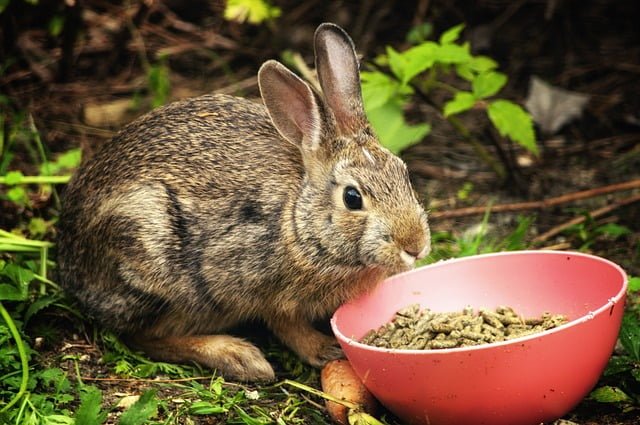
Frequently Asked Questions
What is the best food for rats?
The best food for rats is a balanced diet that includes a mix of pellets, fresh fruits and vegetables, and occasional treats such as nuts and seeds. It is important to avoid feeding rats sugary or fatty foods as they can cause health problems.
Can rats eat cat food?
Rats can eat cat food in moderation, but it should not be their primary food source. Cat food is high in protein and fat, which can be harmful to rats if consumed in excess.
Can rats eat wet dog food?
Rats can eat wet dog food, but it should not be their primary food source. Wet dog food is high in protein and fat, which can be harmful to rats if consumed in excess.
Can rats eat bird food?
Rats can eat bird food, but it should not be their primary food source. Bird food is often high in fat and lacks the necessary nutrients for a balanced rat diet.
Do rats eat dog poop?
Rats may eat dog poop if they are hungry, but it is not a healthy or recommended food source for them. Dog poop can contain harmful bacteria and parasites that can make rats sick.
Can I feed my rats rabbit pellets?
Rats can eat rabbit pellets, but they should not be their primary food source. Rabbit pellets lack the necessary nutrients for a balanced rat diet and can cause health problems if consumed in excess. It is important to provide rats with a variety of fresh fruits and vegetables in addition to pellets.

